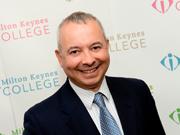Recognising FE professionals

Almost without notice at the end of last month, the Government slipped out its new Further Education Workforce Strategy.
For those interested you can read a copy here.
In essence the report charges the new Education and Training Foundation with doing the following: define and promote professionalism in the sector; maintain and develop occupational standards for the workforce; ensure the availability, scope and quality of initial teacher training; provide resources and support to improve teaching, learning and assessment; develop a national Vocational Education and Training (VET) Centre to support research, development and innovation, focused on vocational pedagogy and development of VET more widely; and enable the development and updating of workforce skills and knowledge in technical, occupational, vocational and subject areas.
The report also notes that “too many teachers do not have the level of professional skills needed in the key areas of maths and English or the confidence and capability to secure good outcomes for students with SEN.” Hence the new £20,000 bursaries available for Maths teachers and English teachers and lots of encouraging words about wanting qualified and better calibre entrants to the FE teaching profession. Though this is slightly ironic given the government withdrew the statutory requirement to be qualified – presumably to save some money.
Perhaps what is of most interest in this report is its sense of confusion. At the heart of government thinking is a rather obvious example of cognitive dissonance. Most reforms, including those in education, are based on a single idea – that by increasing competition quality will rise, standards will rise and outcomes will improve. This explains the impetus behind tuition fees in HE, new forms of schools in education and freeing FE colleges to decide their own futures. At the same time Vince Cable at the Department of Business Innovation and Skills is attempting to ‘manage’ the economy through having some form of industrial strategy into which the supply side should fit.
However having an industrial strategy and letting the market rip are not entirely comfortable bedfellows. Exhorting people to become better while not doing very much to aid the process is a bit like fiddling while Rome burns. And this is sort of what you get with the Further Education Workforce Strategy. I understand that Matthew Hancock, the Skills Minister is establishing a ‘nudge’ unit to look at what to do with adult skills. I am a fan of the ‘nudge’ school of behavioural economics but do not think it can get you all the way in many areas of policy. Workforce planning is one. If we want to do workforce planning then let’s do it properly.
So what could this look like? I think this is where we do need the sector to take some control of its own destiny. The FE workforce’s uniqueness among teaching workforces is that many of its practitioners come from industry or work. They can be dual qualified. This dual qualification is a huge asset to the sector which is too often underplayed. It needs to be built upon and more widely celebrated.
Second all teachers in FE must be, or become, qualified. It is simply not a tenable position to say they shouldn’t. The process of qualification is partly about values as well as skills and aptitudes. Teaching is about generating public and social value as well as helping develop skills and knowledge for individuals. The qualification process helps uncover an individual’s desire to embrace such ideas and internalise what it means to be a professional.
But getting qualified is just the first step. How does the sector raise the bar in terms of professionalism? What more should it do? While being fully cognisant of the previous attempts to do something similar, my answer would be to take a long hard look at creating a Chartered body which itself could deliver chartered status on members through a process of CPD and accreditation. This could be the Education and Training Foundation or the Institute for Learning.
Many of the existing teachers in FE are already members of chartered bodies such as engineering, marketing, management, HR, accountancy and many more. So why not have a Chartered Lecturer in FE? Such a process would ensure quality and enhance the profile of what is the second oldest profession (think Plato’s Academy). It would attract different people to consider becoming practitioners. It offers a genuine licence to practice mechanism and offers assurance to businesses, students and their families that their local FE College has highly qualified professionals at its heart. Like existing chartered bodies it could have different levels of recognition such as Fellow.
If we want to drive quality in our workforce we have to recognise that teaching is a profession capable of doing many things at the same time. A chartered FE sector could become an even more powerful driver of social mobility, enhanced productivity and growth. But it can’t just be hoped for. We need to plan it properly.
Nick Isles is deputy principal of Milton Keynes College – follow him on Twitter at @dpmkcollege











Responses